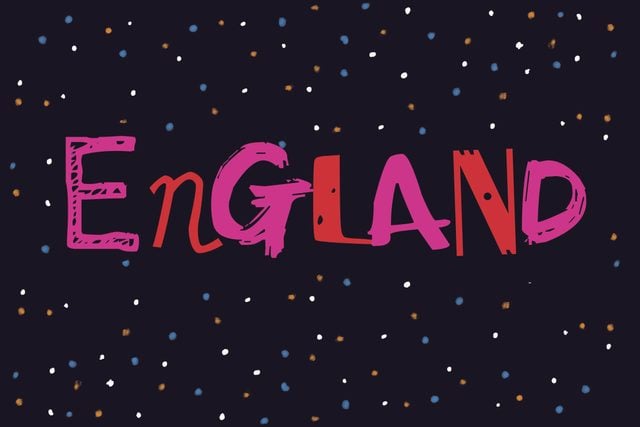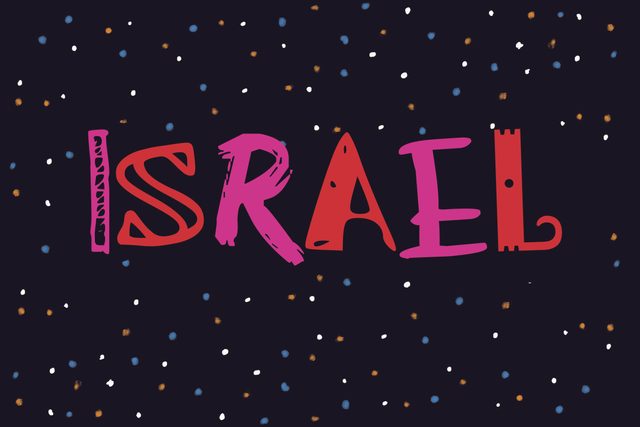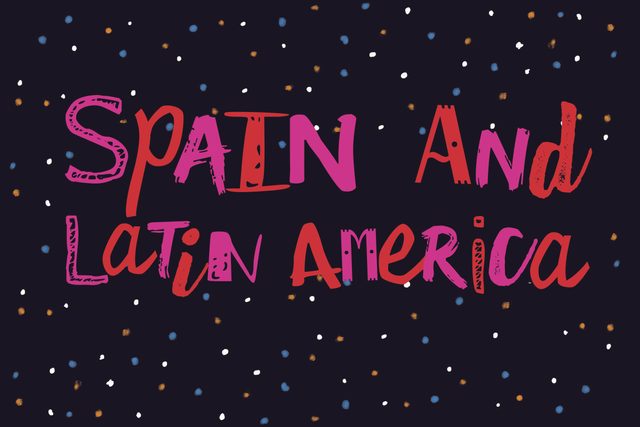Different Kinds of Leaves Pictures and Names
The Middle Name Traditions in 8 Countries Across the World
Picking your baby's name is almost as important as taking your prenatal vitamins (must), never drinking alcohol during pregnancy (must not), and not fighting with your in-laws about the name you've finally landed on (sigh). Parents around the world have gotten hip to just how handy that middle name can be, but traditions still vary about how they're chosen. Wondering what they do across the pond, over the border, and down under? (Spoiler alert: No one tosses a coin.)
 Tatiana Ayazo/Rd.com
Tatiana Ayazo/Rd.com
Scotland
According to Scottish businessman Max Robinson of Scotland Shop, middle names are actually a fairly recent discovery, as previous generations didn't even think to give their kids a middle name. However, as the practice has grown in popularity around the world, it has become pretty common for Scottish babies to have middle names. Because last names in Scotland are generally associated with your family roots, and first names usually describe a physical characteristic, many parents see a middle name as an opportunity to give their baby a slightly more creative moniker that has no relationship to appearance or family history. "Consequently, middle names tend to be pretty interesting!" Robinson says. Laura Wattenberg, author and founder of Baby Name Wizard, who did an analysis on current middle names in Scotland, has noticed that many of the top middle names are two generations behind fashion across the globe. "The Scottish still want to honor our grandparents, but are no longer willing to sacrifice style to do it. So, we use their names as middle names, instead of as first names," she explains.
 Tatiana Ayazo/Rd.com
Tatiana Ayazo/Rd.com
England
According to the Daily Mail, England's adorable bundles of joy are now 80 percent more likely to have a middle name than they were in generations past. And, if parents can't decide on a single middle name, no worries. Over 10 percent of British babies are given two middle names, instead of one. Traditional names are highly favored here, with many chosen to honor a beloved, departed relative. This particular middle-name trend began in earnest after World War II. England suffered great losses during the war, and providing middle names to the babies born afterwards gave great personal relief to people who had lost loved ones. Fun (royal) fact: The adorable Princess of Cambridge, born to proud parents Prince William and Kate Middleton, shares a middle name–Charlotte–with her Aunt Pippa, Kate's sister.
 Tatiana Ayazo/Rd.com
Tatiana Ayazo/Rd.com
Israel
Choosing a middle name for your baby can get a little complicated, especially if you're an American expat living in Israel. Just ask Varda Meyers Epstein, a Pittsburg native who has lived in Israel for 37 years—and given birth to 12 children there. "It's an Ashkenazi Jewish custom to name children after deceased relatives. Unfortunately, a lot of our deceased relatives had Yiddish names that don't sound very good to modern ears, especially in Israel, which looks down on anything that smacks of the Eastern European ghetto. So at first, we tried naming kids after biblical figures, and when asked by our moms who the baby was named after, we'd say, for instance, 'Yocheved from the bible, Moses' mother.' They tried not to show us they were upset we weren't following the custom. Then we tried to use the Yiddish names, or find a Hebrew name that had the same meaning. We often used the family names as middle names, which still rankled our parents, because they sensed we were relegating the names to the refuse pile by sticking them in the middle—that we'd never use them. And of course, we had issues, when it came time to make wedding, or bar mitzvah invitations, which called for using the full (and embarrassing) middle names. My daughters did not want 'Nissel' (which means 'little nut') or 'Goldie' to appear on their invitations," she explains. The custom of naming children for deceased relatives is a centuries-old tradition, honored (more or less) by Ashkenazi Jews around the world.
 Tatiana Ayazo/Rd.com
Tatiana Ayazo/Rd.com
Spain and Latin America
"In Spain and Latin America, a middle name is a way to break free from the cultural code governing first names," says Intercultural strategist, author, and coach Annalisa Nash Fernandez. In some countries, even first names are legislated to be of Christian origin. In Chile, most girls are named Maria, after the Virgin Mary, so the middle name, which is actually a composite first name, is used in practice for differentiation. Maria is the most common name in the Spanish speaking world, according to Fernandez, so in all countries the middle name takes on great significance. The middle name, actually the composite first name, also breaks free from cultural naming norms, in that it can be gender indifferent; most commonly, Maria for males and Jose, after St. Joseph, for females (e.g. Maria Jose for females, and Jose Maria for males).
 Tatiana Ayazo/Rd.com
Tatiana Ayazo/Rd.com
Russia
In Russia, both boys and girls are given middle names based on their father's first name, a patronymic practice. For boys, the middle patronymic name usually has ovich, or evich, added to its ending. For girls, the middle patronymic name usually has ovna, or evna, added to its ending. People in Russia are often referred to by both their first and middle names, sort of the way parents in America use their children's full names when they're trying to get their attention (or yell at them). Close friends in Russia often forgo use of their first names completely, and use only patronymic names, when talking to each other.
 Tatiana Ayazo/Rd.com
Tatiana Ayazo/Rd.com
Australia
Australia may not be a haven for celebrity wannabes hoping to name (or saddle) their kids with oddball names (you know who they are). According to Law Buddy, an Australian legal advice service, child naming laws in Australia allow Birth Registrars to refuse to register baby names that they consider to be obscene, careless, inappropriate, or ridiculous. They do allow for children to get a middle name, which is typically reserved for the mother's maiden name. Provided, of course, that the mother's maiden name is not obscene, careless, inappropriate, or ridiculous. In the land down under, it may be easier to name your joey than it is to name your baby.
 Tatiana Ayazo/Rd.com
Tatiana Ayazo/Rd.com
China
"The whole approach to naming is so different once you get out of European naming traditions. In China, the idea that there is a separate set of words, called names, doesn't exist. Any word in the dictionary can be used as a name," says Wattenberg. Middle names are virtually unheard of in China. However, some Chinese people change, or Anglicize their names later on in life, and may choose to take a middle name at that time. That may be an excellent idea. As reported in the European Journal of Social Psychology article, "The impact of middle names: Middle name initials enhance evaluations of intellectual performance," middle initials add an aura of intelligence, prestige, and status. Even common words have multiple meanings in Hawaii.
 Tatiana Ayazo/Rd.com
Tatiana Ayazo/Rd.com
Canada
Canadian baby-naming customs vary somewhat among the English Canadian and French Canadian people. Decades ago, these differences were even more pronounced. Catholic French Canadians typically gave their children three birth names—the Christening name of either Marie, for girls, or Joseph, for boys, a middle name, which was the same as their godmother or godfather, and a third name, which was used the way Americans use their first names. This was all in addition to their last, or family, name. This custom is no longer as common as it was decades ago. English Canadians rarely include a religious first name, and have traditionally chosen middle names in the same way that we do in the U.S.
Originally Published: February 27, 2017
Sign up for articles sent right to your inbox
Enjoy the best stories, advice & jokes delivered right to your inbox!

Subscribe & SAVE Save Up To 84%!
Different Kinds of Leaves Pictures and Names
Source: https://www.rd.com/list/middle-names-traditions/